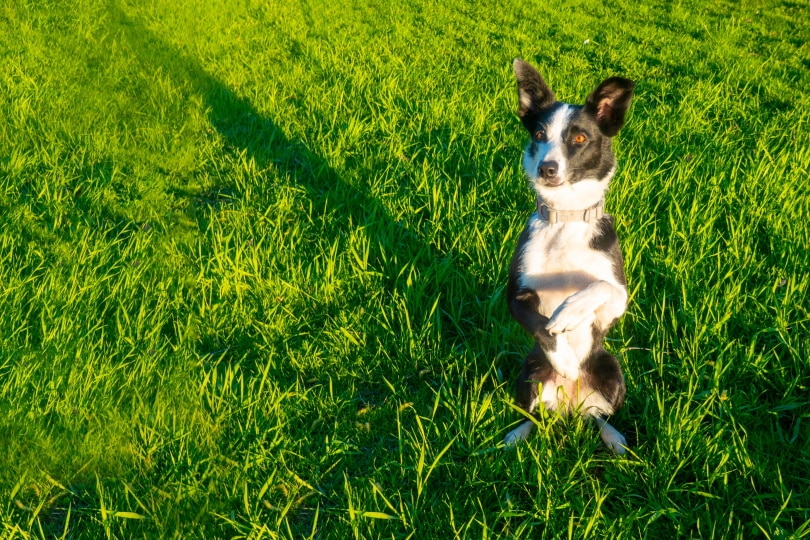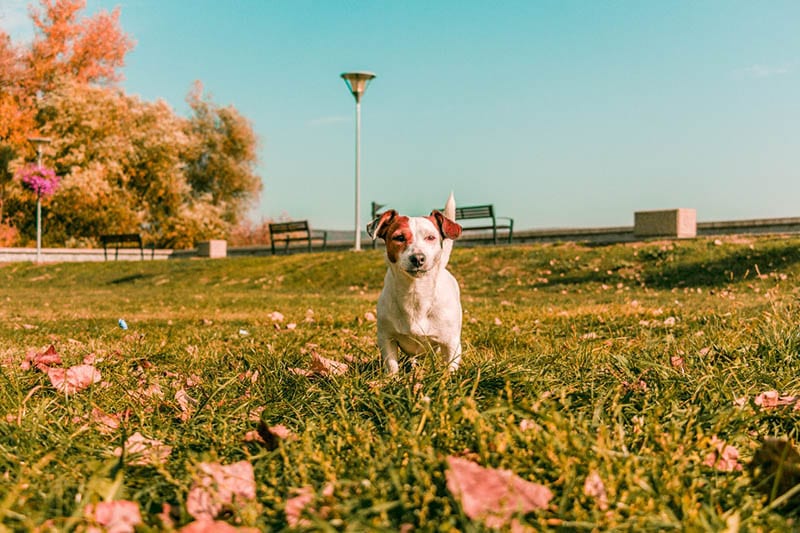14 Basic Tips for First-Time Dog Owners: Expert Advice & Facts
Updated on
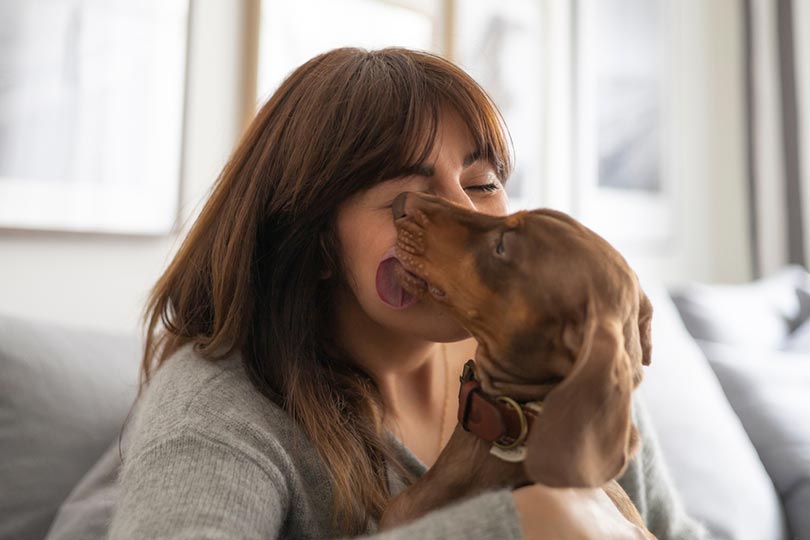
Becoming a dog owner for the first time is an incredible experience, but it can also be overwhelming. One of the best things that you can do is to be prepared beforehand, not only with supplies for your new pup but also knowing what to expect. We want to provide you with all the information that you need to be prepared for your new furry family member. From essential supplies to essential knowledge, here are the best tips for first-time dog owners.
 The 14 Tips for First-Time Dog Owners
The 14 Tips for First-Time Dog Owners
While owning a dog can be one of the most rewarding experiences in the world, it’s also a huge commitment. It includes understanding what a dog requires and ensuring that you can meet their needs — mentally, physically, and financially.
1. Make an accurate assessment of your lifestyle, and do your homework
Not all dogs are created equal. While each one is an individual, it’s extremely important to do your research regarding dog breeds. Each has different needs, and your lifestyle will determine what breeds of dogs are best for you. While there are exceptions to every rule when it comes to “typical breed behavior,” it’s still best to consider those rules, especially if you are a first-time owner. Just because your neighbor manages to keep a Border Collie in an apartment without destructive behavior doesn’t mean it’s a good idea for you.
Before choosing a dog breed, do an accurate assessment of your lifestyle. This includes how active you are, where you live, how much yard space you have, who lives in your house, and how many hours a day you spend away from home. If you live in an inner-city apartment and spend 8 hours a day at work, a toy or small breed dog with low exercise requirements and an independent personality is probably best for you, such as a Yorkie or Maltese. If you live in the suburbs with children and a large backyard and take daily runs outdoors, your lifestyle may easily welcome a large dog that’s good with kids, like a Lab Retriever or Golden Retriever.
The most important point here is that first-time owners shouldn’t break the mold when it comes to the type of lifestyle that is best for each breed. Choosing a breed that fits your life, rather than changing your life to fit the dog, will avoid a great deal of frustration and stress in the long run.
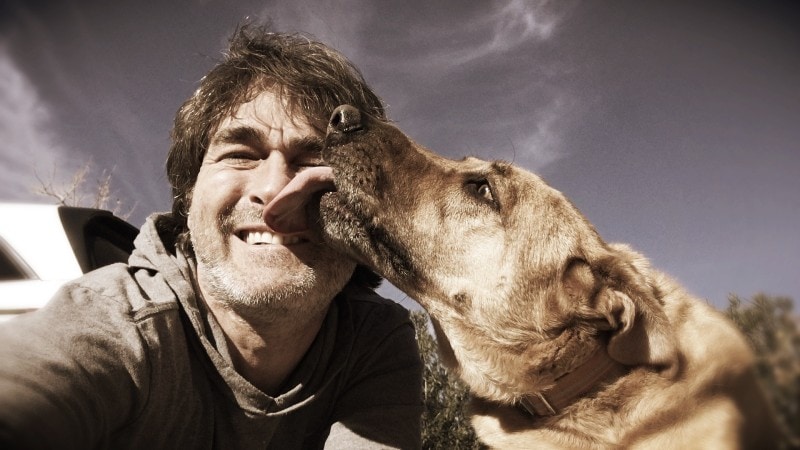
2. Know what to expect
Whether you are buying a puppy from a breeder or adopting an adult dog, there will be an adjustment period for both you and your dog. Be prepared and know what to expect beforehand. The dog doesn’t know you any better than you know them, so be patient and have low expectations for the first few days. Adult dogs in particular may have had negative experiences in their past, so they can take a while to settle into a new home.
Some dogs are overwhelmed or even scared. They hide under a bed or refuse to interact with you. Others become incredibly hyperactive or appear to be overly lazy, then suddenly have a complete transformation once they get comfortable. Some dogs take only a day or two to adjust, while others can take several months (especially if they’re older).
Puppies may cry for the first few days in your home, as they’ve been removed from their mother and their siblings — the only source of comfort that they’ve ever known. They also require more work as you get them housetrained, crate trained, and obedience training.
Either way, it takes a while to get a routine with a new dog, so make as many plans as you can ahead of time, set up your house, and be prepared for a few of your plans to fall flat. Laugh about it and make a new plan — eventually, you and the dog will adjust.
3. Plan around your daily schedule
Part of planning for your new dog includes knowing where your dog will spend most of their time. This often means a crate for puppies, but who will take them out while you’re at work? Or is someone home most of the time? If you have multiple people in your home, who is in charge of cleaning up after the dog?
Even if someone is home all day, there are times when the dog will have to be left alone. Whether it’s a puppy or an adult, you need a plan for where they will be. This can be a crate, a separate room, a gated pen, or anywhere that the dog is safe and secure and has access to water.
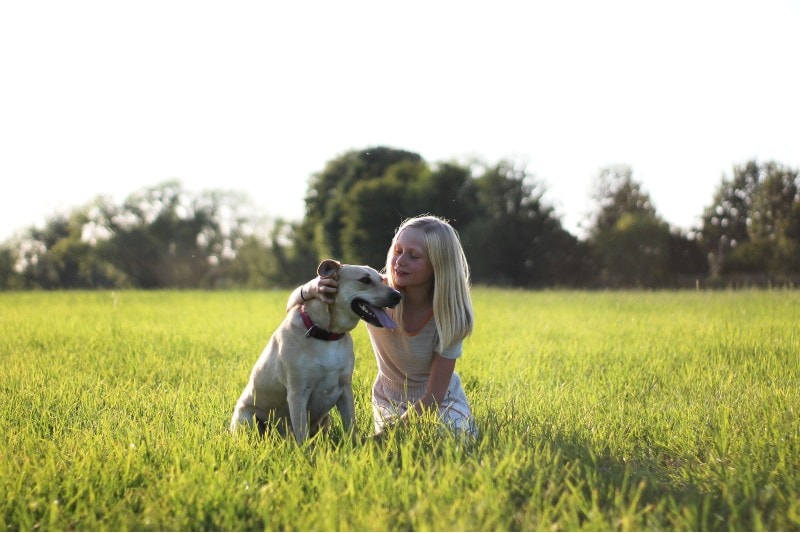
4. Know your budget, especially if you’re getting a puppy
The cost of a dog is often something that surprises new owners. Puppies especially have many expenses in their first year of life. This year alone can average expenses of $4,800.
Adult dogs don’t require as much care but still need annual checkups, vaccinations, grooming, and food. Evaluating what your dog needs and having a rough idea of what it will cost will prevent you from being surprised later.
5. Find a vet
Finding a vet whom you trust is an important step for first-time dog owners. One of the first things that you should do with a new dog is to visit the vet for a wellness check. Choose one who lets you ask questions and will walk you through vaccinations, flea-and-tick prevention, heartworm medication, and diet and exercise requirements.
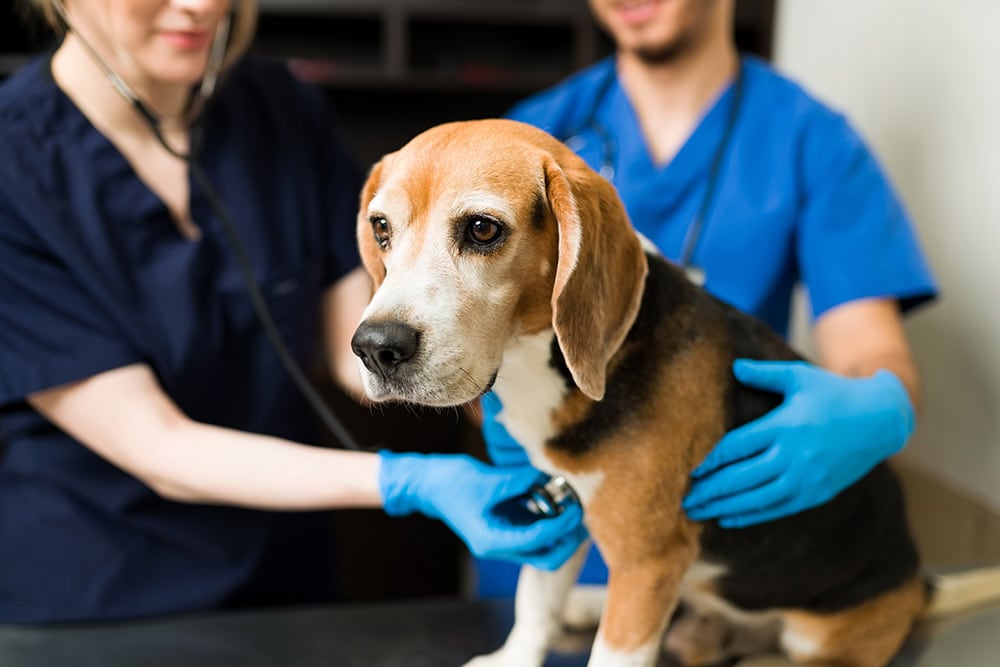
6. Prepare your house
Before you bring a dog home, your house and yard will need to be dog-proofed for safety, especially if you have a puppy. You’ll also need to stock up on certain supplies, like a leash, collar, bowls, toys, and a crate, if you intend to use one. Adult dogs don’t require quite as much stuff because they’re past the teething stage and are often housetrained, but they’ll still need to be walked and have a bed to call their own.
Some pet stores sell starter kits to give you the basics that you need when having a new pup at home.
It’s important to note that while there are certain supplies that your dog needs, differentiate between needs and wants to keep your budget in check. Not all dogs like the same toys, so don’t go overboard before you know what they like. Your dog might need a leash, but they don’t need a $100 designer leash — a $20 Walmart variety will do just fine.
Many fantastic lists are available online to help you determine what is important and what can wait. Most pet supply websites, like Chewy, are great places to explore the available products. Chewy even has a “New Dog Shop” with checklists and products sorted by category to help you stay organized.
7. Be consistent with training
Being consistent about the rules in your home helps your new dog adjust. While it will take time for your dog to bond with you, practicing positive reinforcement training techniques, rewarding good behavior, and establishing firm boundaries all help establish your relationship.
One of the biggest mistakes often made by first-time owners is to allow certain behaviors at first and later demonstrate that they aren’t acceptable. For example, you may allow your new puppy on the couch while you watch TV, but as they get bigger, you may decide that they can’t be on the couch due to their size. This creates confusion for the dog and damages their trust in you. Consistency is the key to having a happy dog and a happy home.
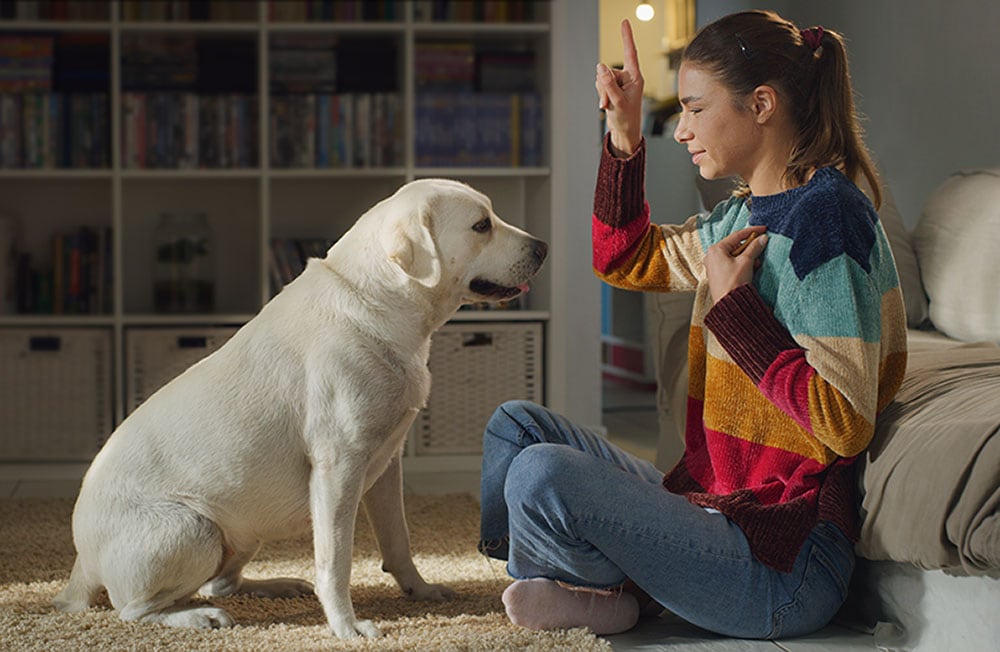
8. Choose a quality dog food
When it comes to dog food, don’t just choose the cheapest brand. Make sure your dog has all the ingredients that they require to stay healthy, and find food that meets their individual needs. Large breed dogs have different needs than small ones, senior dogs need different nutrition than puppies, and some dogs have allergies or food sensitivities that need to be addressed with their diet.
If you’re not sure what food is best for your dog, discuss your options with your veterinarian. It can also be helpful to ask questions at specialty pet food stores where employees are trained in pet nutrition.
9. Consider pet insurance or budget for emergencies
No matter how safe you are or how healthy your dog is, the reality is that things happen. Puppies and adult dogs steal food from the garbage or get into things that they shouldn’t. Sometimes they get sick for reasons out of your control. Having funds set aside for emergency veterinary visits or signing up for pet insurance will give you the peace of mind of knowing that you are prepared for whatever life throws at you. Much like with children, it’s best to expect the unexpected with dogs too.

10. Know the rules
Before you bring your dog home, peruse your local bylaws, home association rules, or building bylaws. Many cities and counties require a dog license. Some have rules about what breeds of dogs that you are allowed to own.
If you live in a shared building, there may be rules about how big of a dog you can have or how many pets are allowed. Some condo and homeowners associations have rules about off-leash dogs and picking up after your pet. Being familiar with these rules will help you avoid a fine later and keep you and your dog safe.
11. Understand your dog’s basic needs
First-time dog owners should get acquainted with their dog’s specific dietary, exercise, and lifestyle needs. This means knowing how much exercise your dog needs, if they have any physical limitations, what type of socialization they need, and the toys and activities that will keep them mentally engaged.
A good percentage of dog behavior problems stem from either a lack of adequate exercise or boredom. Meeting your dog’s needs in these two categories will help avoid much frustration for you and your dog.

12. Have a backup plan
Many dog owners don’t consider how their dogs will be cared for if their circumstances change in the future or if they need to travel away from home. If you work long hours or travel occasionally, this may be as simple as finding a dog walker, doggy daycare, or boarding kennel.
But knowing your options if your physical abilities change is also a good idea. For example, how will your dog get walked if you break your leg? Do you have someone to check on your dog if you can’t get home? Can you support your dog if you lose your job? While we don’t like to think about certain things, a dog is a lifetime commitment. You owe it to your pet to have an idea of what you will do if the unthinkable happens.
13. Be prepared for problems and setbacks
No matter how many plans you make or how well-behaved your dog is, at some point, something will happen to derail things. Either your dog will have a bathroom accident indoors, they will dump the trash bin on the kitchen floor, or they will chew up your favorite headphones. Unfortunately, these things are part of owning a pet. Even the most diligent and prepared pet owners will have a few incidents.
Know that these types of things are normal and that you can’t prepare for everything. Most of these setbacks will become stories that you laugh about later. If you have real concerns about your pet’s behavior, talk to a dog trainer or your veterinarian for advice.

14. Relax
The best tip for first-time dog owners is to relax and enjoy your time with your new dog. There are hundreds of books and internet articles on what to do with a new dog or puppy, and they can include advice that causes many new owners stress.
Yes, it’s important to get out and socialize with your dog, but it’s also important to give them their space and spend time bonding with them one on one. Do the best that you can. We all make mistakes. Your dog will forgive you. Take a breath, relax, and love your dog. We promise that your dog will return that love in ways that you can’t even imagine!
 Conclusion
Conclusion
Adopting a dog for the first time can be a bit overwhelming, but it doesn’t have to be. Do your homework beforehand, prepare the best that you can, and don’t be afraid to ask for help when you need it. Following these tips will help you get ready for one of the most rewarding experiences of your life!
Featured Image Credit: A Traves del Prisma, Shutterstock
 The 14 Tips for First-Time Dog Owners
The 14 Tips for First-Time Dog Owners